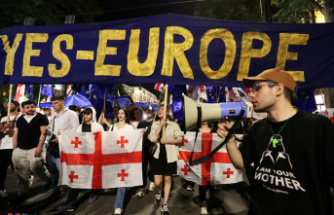Many zoo animals need warmth to survive or to thrive. Aquariums, terrariums or animal houses must be heated. Rising energy costs are also having an impact on Rostock Zoo.
Rostock (dpa/mv) - The increase in energy prices has also left its mark on the largest zoo in Mecklenburg-Western Pomerania in Rostock. On January 1st, the prices for tickets will be raised there and season tickets will also be introduced. Annual tickets are also becoming more expensive. The zoo justified the increase in mid-November with rising energy and consumer costs and increased wage costs.
The number of 2022 annual tickets sold at the old price of 63 euros was forecast by the zoo at the weekend by the end of the year at around 22,300 - as of November it was already 21,811. If you still buy annual tickets in December, you can use them until December 2023. From January 1st, the prices will increase by eleven percent to 70 euros for adults.
In 2023, day tickets for adults will also be raised from EUR 17.50 to EUR 20.50 in the low season (October-March) and to EUR 23.50 in the high season (April-September). Day and annual tickets for children are excluded from the increase.
In terms of energy consumption, the Darwineum with its 4,000 square meter tropical hall and the polarium are the biggest consumers in Rostock Zoo. Heating is primarily provided by district heating from Stadtwerke Rostock; Electricity is only used selectively, for example for heat lamps in terrariums.
According to Zoo 2022, the heat supply will incur a total of 500,000 euros for district heating and gas. As a precautionary measure, the zoo, in which 4,500 animals live, planned a cost increase of 30 percent for the heat supply in the 2023 annual plan.
According to a forecast by the zoo management, the considerable pandemic restrictions of recent years, but also the further increasing costs, led to a deficit of around 300,000 euros at the end of the year. There are many reasons for this and it is not solely due to the energy costs. "The result was positive in 2021 and amounted to plus 19,490.23 euros," emphasized the zoo.












